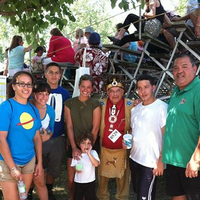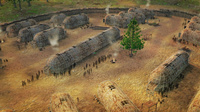How the Iroquois Great Law of Peace Shaped U.S. Democracy
In 1744, the Onondaga leader Canassatego gave a speech urging the contentious 13 colonies to unite, as the Iroquois had at the signing of the Treaty of Lancaster. This cultural exchange inspired the English colonist Benjamin Franklin to print Canassatego’s speech.
EXCERPT "We heartily recommend Union and a good Agreement between you our Brethren," Canassatego had said. "Never disagree, but preserve a strict Friendship for one another, and thereby you, as well as we, will become the stronger. Our wise Forefathers established Union and Amity between the Five Nations; this has made us formidable; this has given us great Weight and Authority with our neighboring Nations. We are a powerful Confederacy; and, by your observing the same Methods our wise Forefathers have taken, you will acquire fresh Strength and Power; therefore whatever befalls you, never fall out one with another."
He used a metaphor that many arrows cannot be broken as easily as one. This inspired the bundle of 13 arrows held by an eagle in the Great Seal of the United States.


Enjoy being online again!
Welcome to the community of good people who base their values on evidence and appreciate civil discourse - the social network you will enjoy.Create your free account
4 comments
Feel free to reply to any comment by clicking the "Reply" button.Wasichu have broken almost all treaties with First Nations.....proof that USA is not an xian nation, NW ORDINANCE of 1787 provided tax money for printing USA bibles weaponized to conquer tribal cultures not distributed to whites Jews or Masons
I used to teach thst with American literature. The metaphor to bury the hatchet comes from that.
The Confederation crumbled when they split their support during the Revolutionary War. They had added a sixth tribe since the original agreement. The six tribes couldn't decide who to aid, the evil, nasty Brits (just getting my Brit friends riled) or the kind, caring, quite patriotic revolutionaries. And, thus they were split, never rejoined and destroyed once the Brits left. The two tribes who supported the settlers were, of course treated no better and pushed Westward just like the tribes that joined the British.
Enjoy being online again!
Welcome to the community of good people who base their values on evidence and appreciate civil discourse - the social network you will enjoy.Create your free account
Share this post
Categories
Agnostic does not evaluate or guarantee the accuracy of any content. Read full disclaimer.







